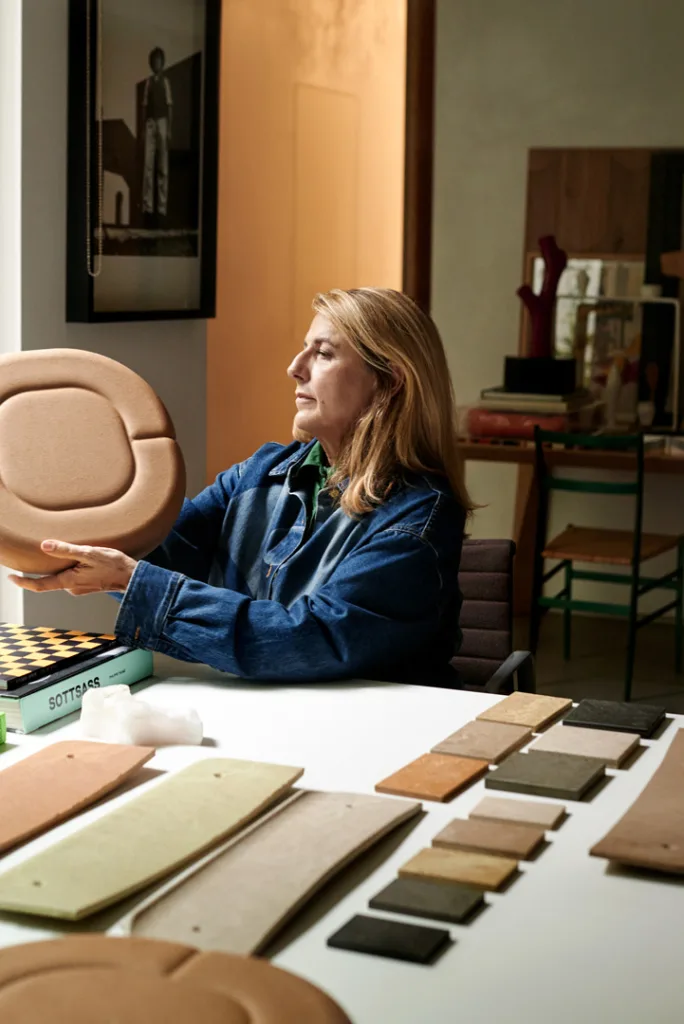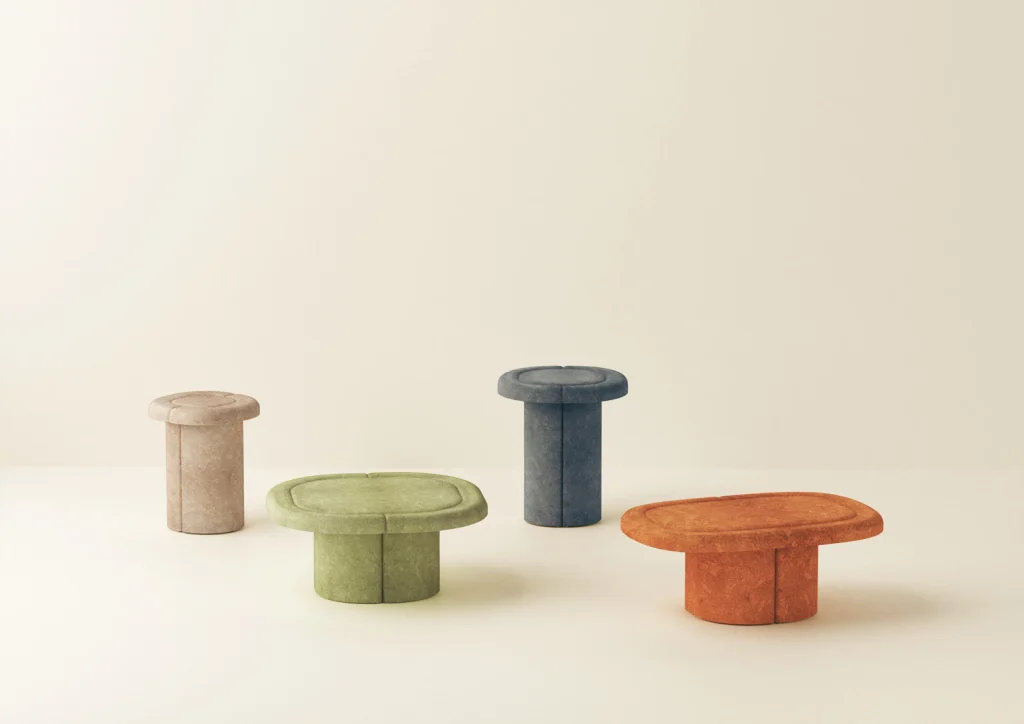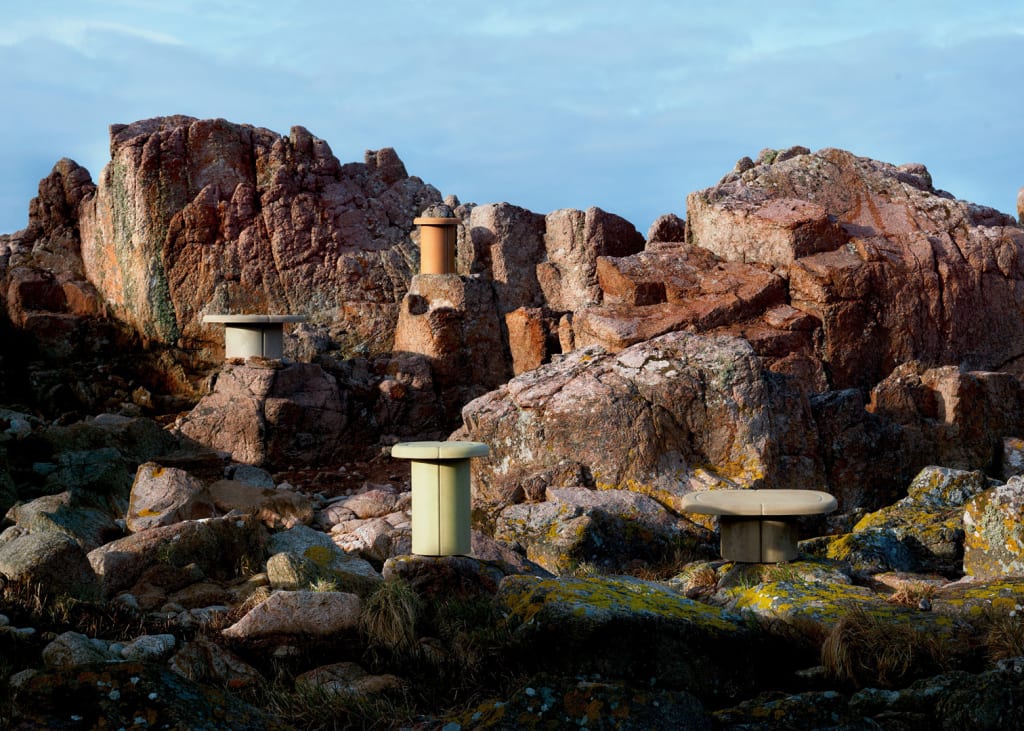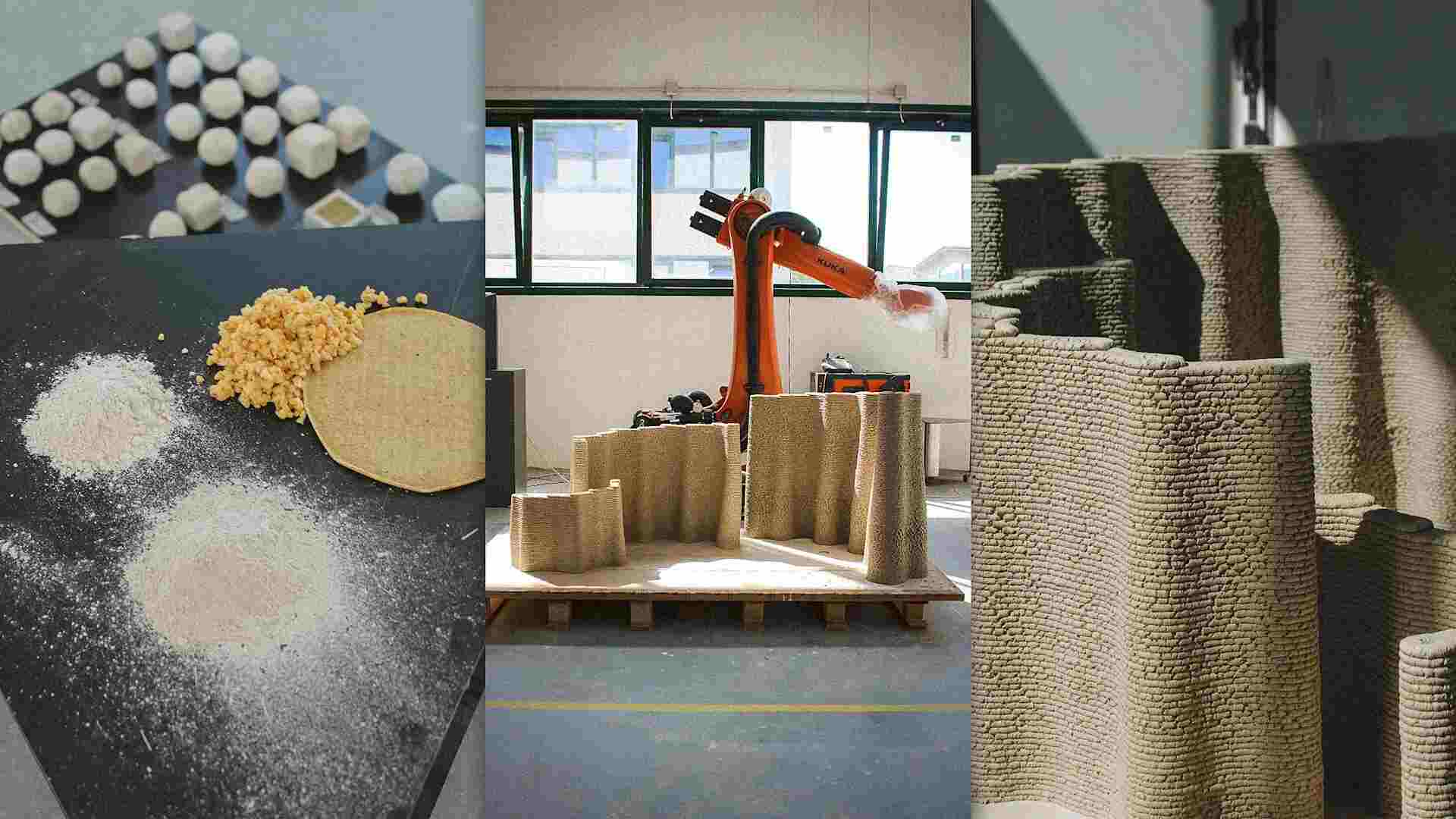- | 8:00 am
This chic furniture is almost entirely biodegradable
The Danish brand Mater is expanding its line of biodegradable furniture made from coffee waste and wood fibers.

Except for the 94% recycled steel used for its frames, everything in Mater’s new Alden collection is fully biodegradable.
The sustainable Danish design company worked with Spanish architect and designer Patricia Urquiola on the collection, which debuted at Milan Design Week. The indoor-outdoor furniture includes square- and oval-shaped lounge tables, a side table, and a stool that come in terra-cotta, light green, sand, and earth gray.

Mater crafted the furniture from two new versions of its patented Matek material, which mixes either coffee waste or wood fibers with biodegradable plastic made from sugar cane that acts as a binder. From there, designers form the material into furniture with a press molding.
“Biodegradable plastic, in this case sugar cane, is a rapidly renewable source that can be harvested one to two times a year, so this advancement made sense for Mater’s journey,” Mater CEO Ketil Årdal tells Fast Company. “Sugar cane naturally absorbs carbon dioxide whilst growing and can be decomposed by living organisms in the same way as wood or any other natural material.”
So how long would it take for the collection to decompose? The exact timing isn’t certain, but Mater says the materials can also be returned and recycled.

“The collection would decompose in the same way as wood or any other natural material, so an exact time frame is difficult to say,” Årdal says. “The collection is designed for disassembly, so each component can be upcycled into new production cycles through Mater’s take-back system.”

Mater has made other furniture pieces from coffee waste, including a dining chair and a cube that can be used as a side table. “Our planet’s resources are not infinite,” Årdal says. “We must rethink antiquated ways of production.”







































